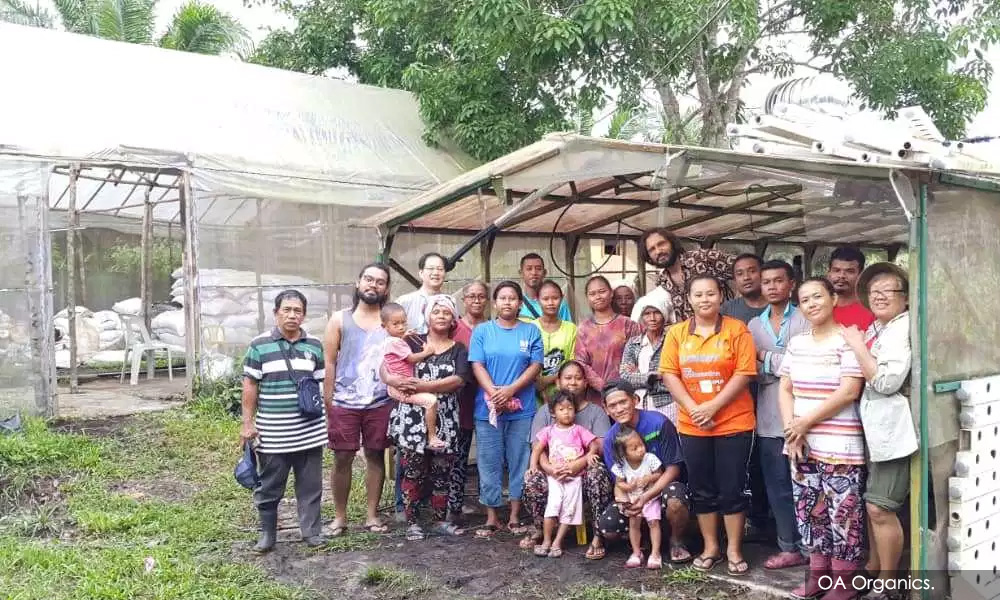
INTERVIEW | Today in New York, the Orang Asli farmers of Kg Ulu Gumum will be highlighted in an exhibition in New York
The eco-farm under OA Organics is one of three organisations that have been selected to be exhibited for the United Nations Permanent Forum for Indigenous Issues which will run from April 22 to May 3. The other two are from Ethiopia and Colombia.
The Forum, established in 2000, highlights the concerns and rights of the world’s indigenous peoples.
OA Organics was selected for its progress in running a sustainable and profitable model working with indigenous farmers, in this case the Jakun community in Kg Ulu Gumum, Pahang.
According to the company’s general manager Kon Onn Sein, the project started to take off three years ago when they secured a UNDP grant.
“We were among 500 organisations around the world that applied for funding. Of that 500, we were among 20 awarded a grant of US$40,000 to start this farm,” Kon (below) told Malaysiakini in an interview.
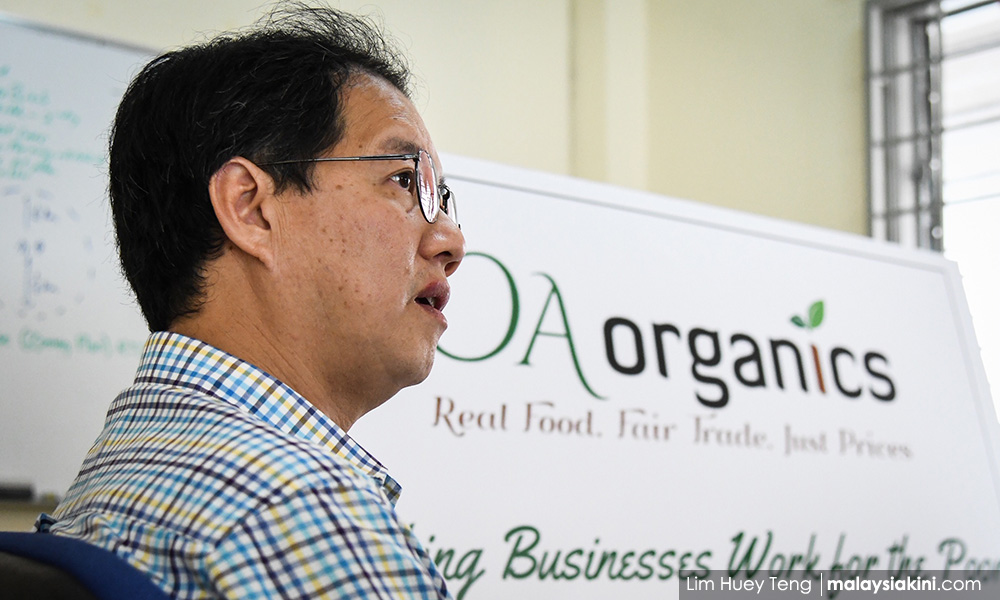
“We needed seed capital to kick off the project. Most importantly, we needed an auto-irrigation system. The setting-up of a social enterprise is very difficult. Pick-up is slow, the cost of setting-up is challenging and at the same time you have to build a distribution network, so you are burning at both ends.”
The initial investment has paid off handsomely. A group, that started off with 14 farmers from the Jakun community, faced some initial challenges and dropped to eight farmers, but has since grown to 32.
“Their earnings started at RM500 a month, but have now grown up to RM1,500 and above. One made RM3,000. This is quite comfortable as they have other methods of living off the jungle.”
The company’s production has also quadrupled from 600kg of vegetables per month in January 2017 to 2,400kg per month in March 2019. That isn’t big business, but the model's success is very encouraging.
“We are encouraging our farmers to farm lowland vegetables, sawi, okra, sweet corn, kangkung and bayam. By giving them a ready-made market, this in turn encourages sustainable development, instead of turning to oil palm or rubber.”
“It builds their economic resilience to encourage them to replenish the forest.”
The next step came when UNDP decided to evaluate the progress of the project.
“They came and did an evaluation in 2017, and they chose us as a successful model of these projects.”
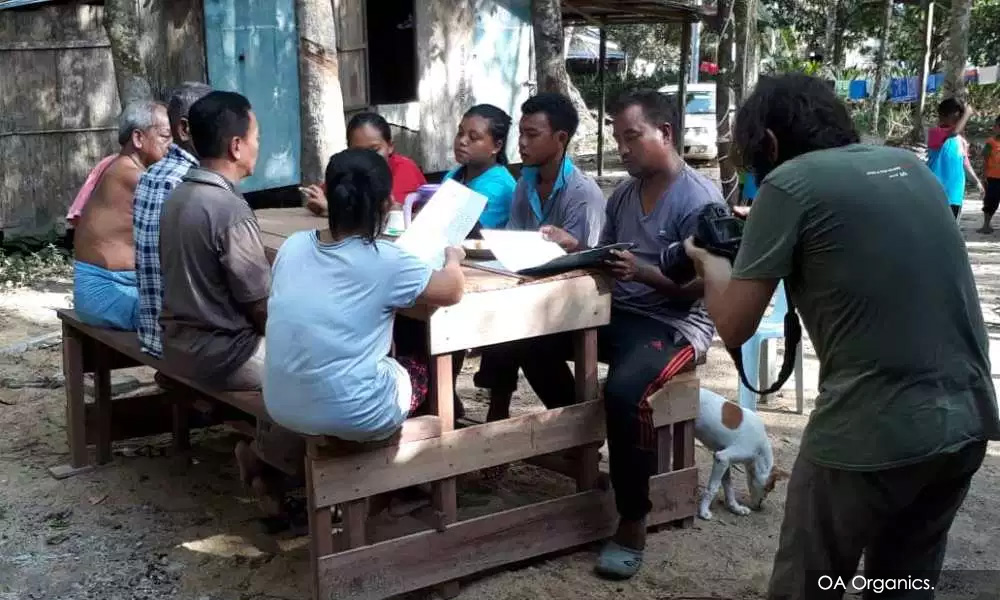
Italian photographer Francesco Cabras came and documented their work.
“It was a happy time and our farmers felt like celebrities,” said Kon.
“All the Orang Asli need is the right opportunities and a fair market. It has been wrongly cast that they want handouts – that is far from their truth. The forest is everything to them.”
OA Organics was spawned as a social enterprise under the Yayasan Kajian and Pembangunan Masyarakyat as far back as 1993. Kon was involved in literacy programmes, building houses and income-generating modules for the Orang Asli.
The working model is a partnership between Orang Asli farms and the cooperative that is OA Organics, which was legally registered as Koperasi Ekonomi Rakyat Selangor Bhd on March 26, 2013.
Initially, it was run by a group of volunteers who were members of NGOs, but now the company has two full-time staff and two part-time staff working with the farmers.
“We started trading in April 2016. Among our first challenges was to assure the Orang Asli that this was a viable and sustainable livelihood strategy.”
“They had in place a Tanam Semula Komersial scheme where they could apply for three to six acres of land to plant oil palm, and they were meant to be given jobs and dividends.”
“But it was hopeless because most of them don’t get a job there because contractors largely want cheap migrant labour. And the Orang Asli ended up in a worse state than before because the forest was gone.
“We needed to find an alternative model. We worked with the Jakun farmers in Pahang’s Pekan district. It took time for them to see it’s viable, and develop the skills and discipline, as they were still hunter-gatherers up til 2008,” said Kon.
Kon was a barrister, but has been involved in Orang Asli activism for nearly three decades.
“When I first visited OA communities and I saw them living in such poor conditions, I just couldn’t take it. We live so well, but there are segments of our country left so far behind. I started thinking how I could use my skills and knowledge to help.”
Fortunately, in this project, there were not too many obstacles. “We had no political obstacles. I think we are too small as only about 50 families are engaged at the moment. Language is also not an issue as the Jakun are part of the proto-Malay group, and hence their language is quite similar.
“Our role is to provide training, capital sometimes, and we develop a fair market so that they enjoy the profits after taking off cost of sales."
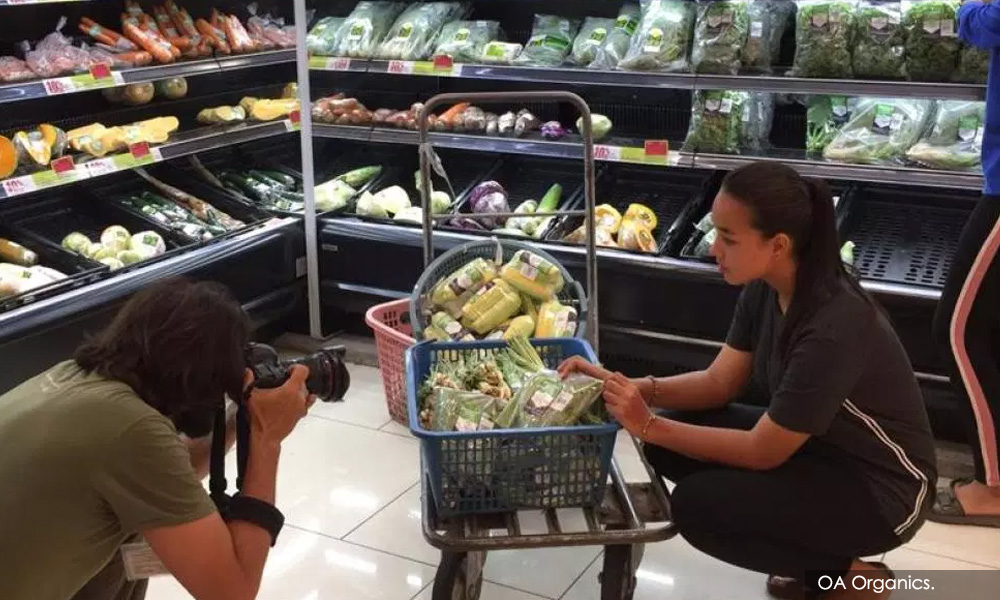
A key boost in terms of economic viability came when Jaya Grocer agreed to help. Initiall,y OA Organics had tried a direct order website, but that did not prove ideal for the trading of organic vegetables.
“We got Jaya Grocer to come in as a corporate social partner. It was a turning point for us, as prior to that in terms of efficiency and logistics, the cost was high. They said, yes, we will provide an outlet for you to sell your produce.
“We have a consignment arrangement with them. They give us a counter where the produce is displayed. We started in Kuantan in September 2017 and the uptake has been good. The positive sales mean we now have counters at four outlets in Kuantan, Starling Mall in Uptown, Main Place in USJ 21 and Glo Damansara.
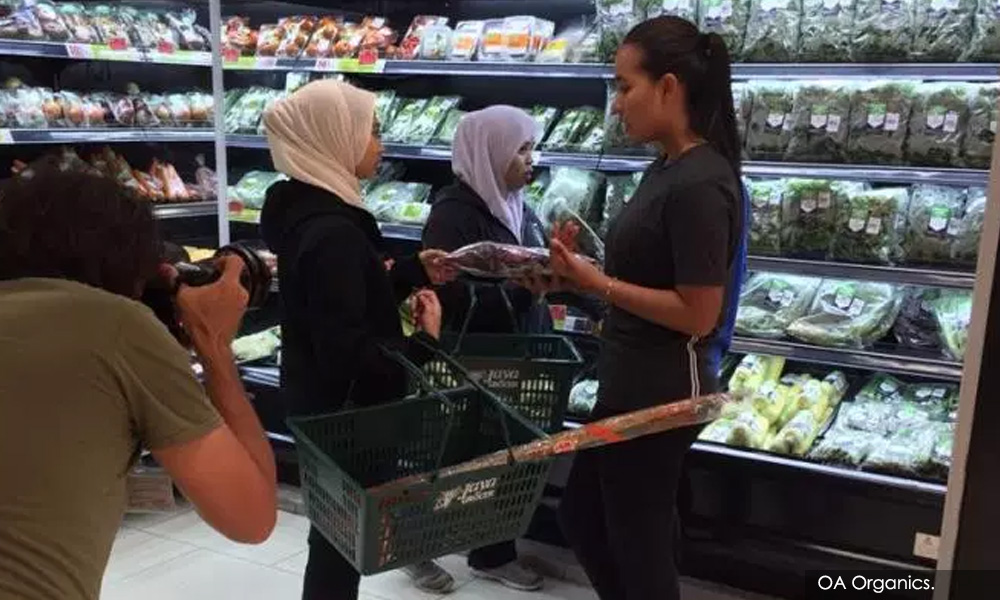
“The turnaround for the farmers was when a few started earning RM1,500 in April 2018. Suddenly, many were interested. Their skill sets also have improved. The good thing with these farms is they work at their own pace. Of course, it’s good to have targets, but we are moving along comfortably, and the farmers can see the correlation between work and reward.”
There are still challenges, one of which was ensuring that the farms stayed organic when pests came along. “We had good support from Ho Ho Farm who taught us to use bio-pesticides. We have to ensure integrity because once your brand is damaged, it’s very hard to restore.”
OA Organics hopes to reach sustainabily in a year. “6,000kg a month will see our farmers reach sustainability and economy of scale. We are in the right direction,” said Kon.
“We were facing a lost generation because the older generation was scavenging off the forest. The middle tried to integrate with mainstream society, but they didn’t have enough grades to do well and they were discouraged because they knew that prices were exploitative. But young people are coming in now and there is renewed hope.
“When you see lives changes, there is hope. I find tremendous motivation in that. That brings me deep joy. Yes, the battle ahead is large. If we can make a difference for some people... with correct training, the empowerment is there and there are no limits to what you can do.”
Kon has been invited to participate in the National Orang Asli Conference being held in Putrajaya today, and is hopeful this model of sustainable development will spread.
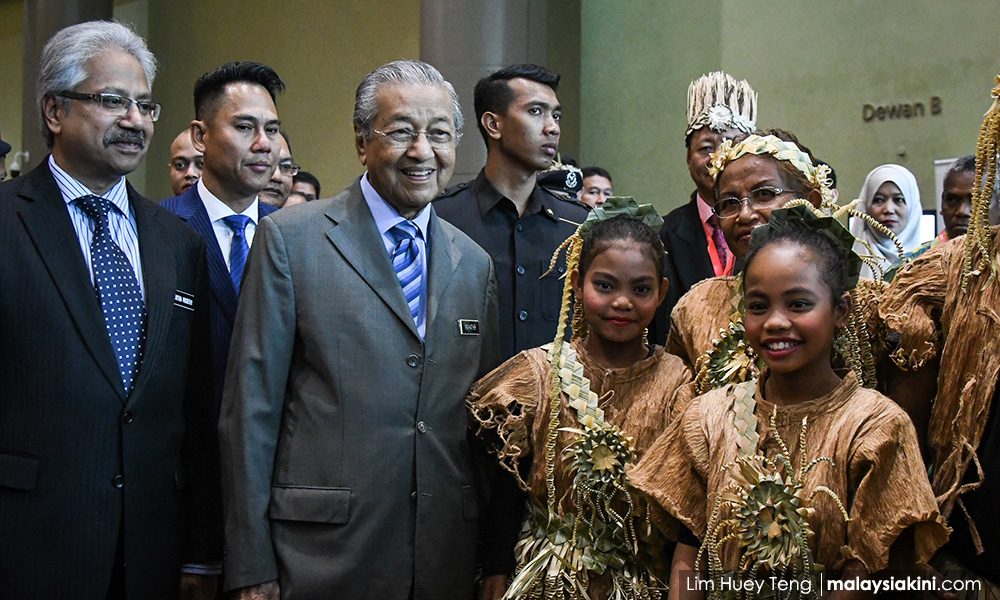
“I submitted a proposal to Waytha Moorthy’s team. I think TSK is wasting a lot of money.
“I ask them - why don’t you do what we are doing? Eco-farming with fair trade that encourages forest replenishment.
“The Orang Asli are uniquely positioned to be the best stewards of the forest. They can earn a living from the forest without destroying it.
“I think this is a beautiful model of corporate partnership and responsible business helping society. We have so many poor in our midst whom we can help." - Mkini


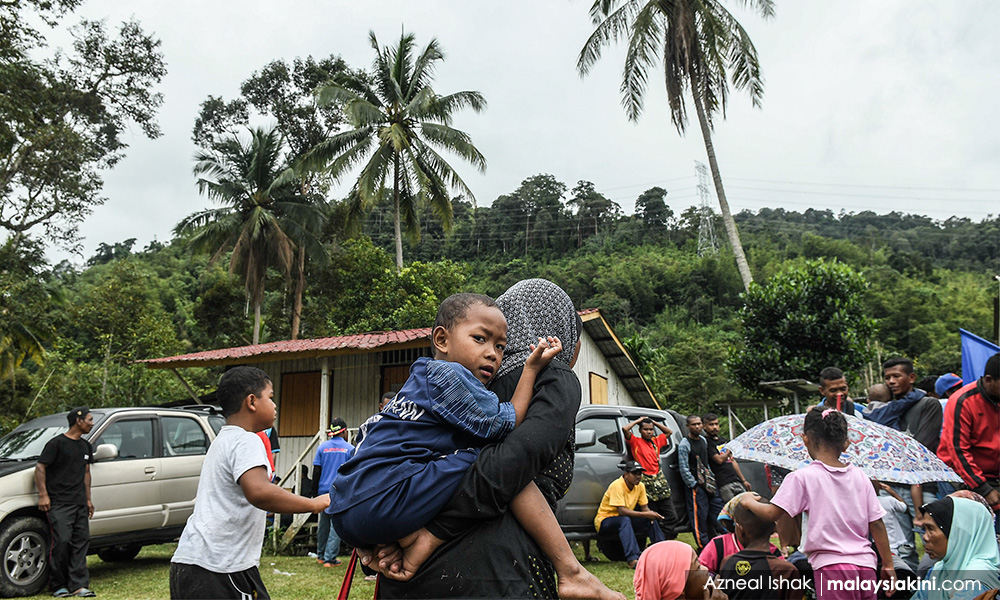
No comments:
Post a Comment
Note: Only a member of this blog may post a comment.